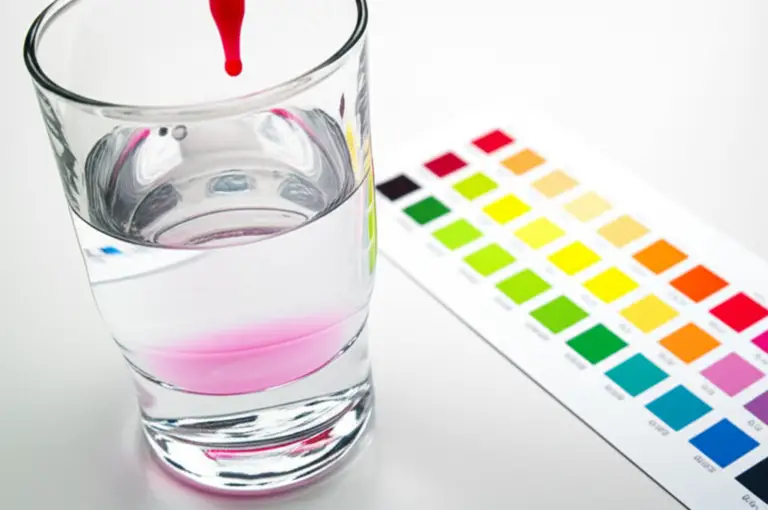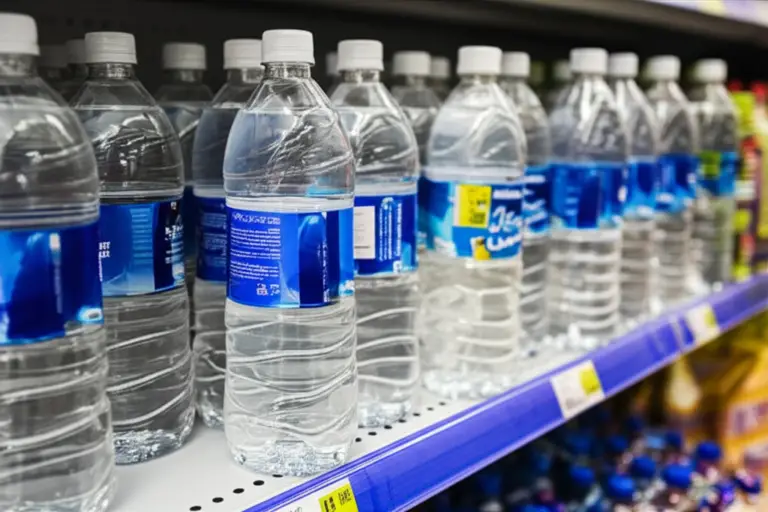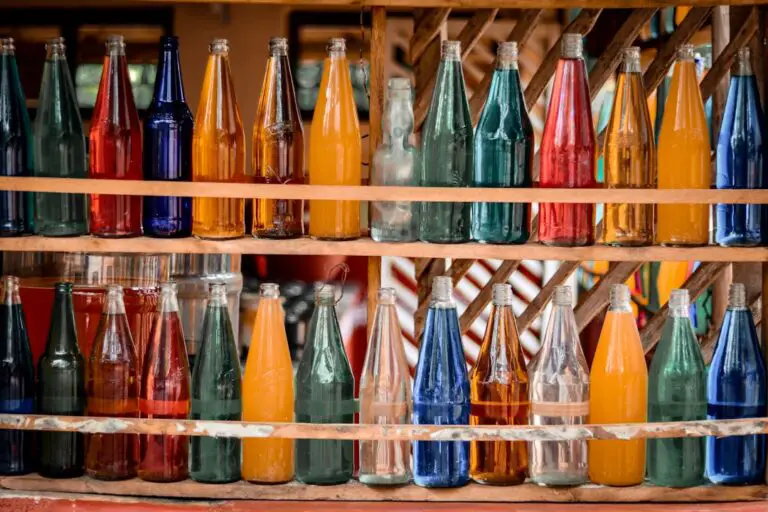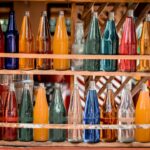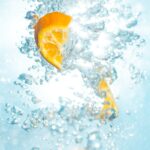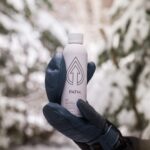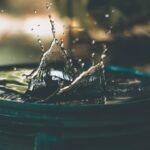Support our educational content for free when you purchase through links on our site. Learn more
🚫 35 Bottled Water Brands to Avoid in 2025: The Ultimate Guide
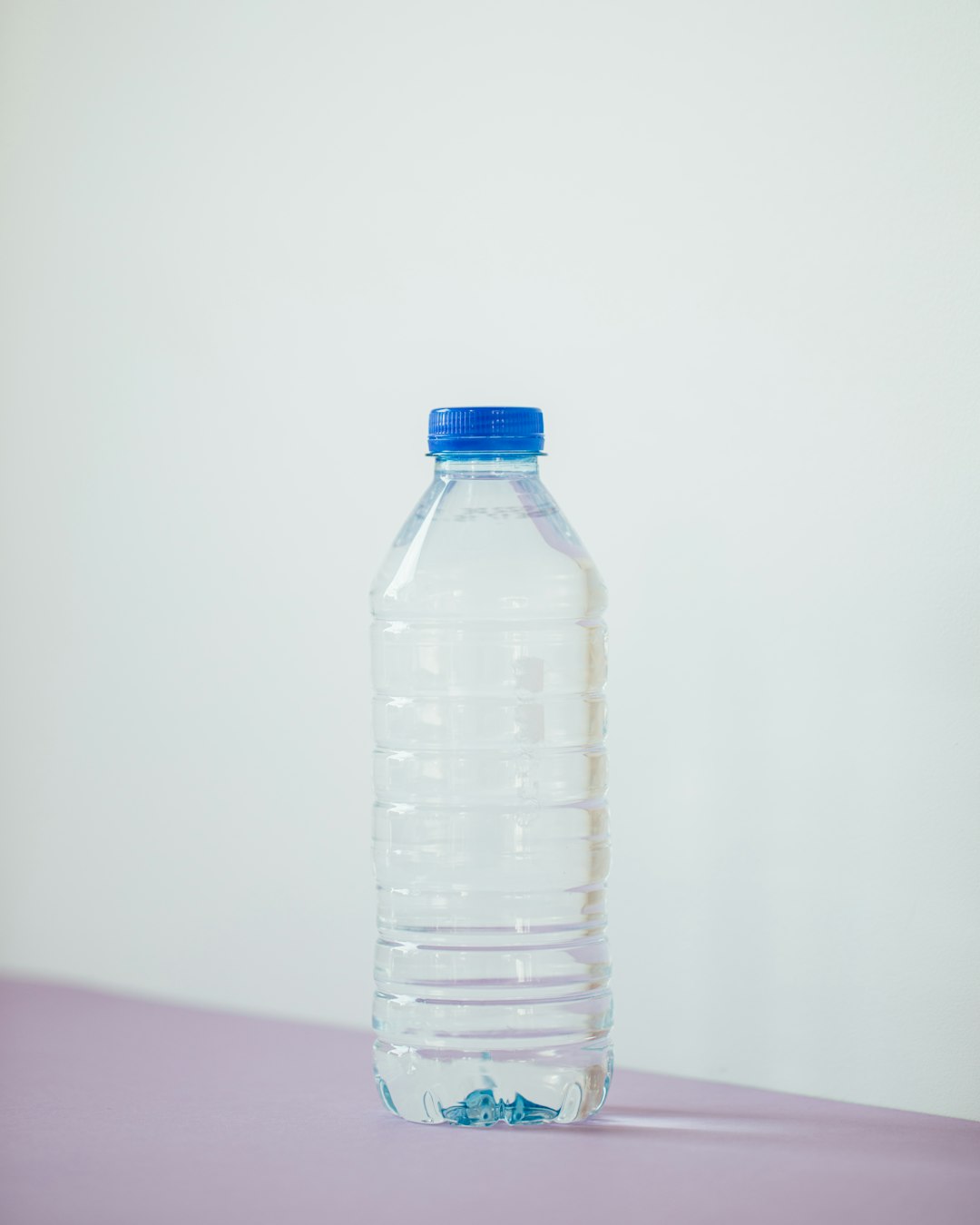
Have you ever grabbed a bottle of water thinking it was the purest, healthiest choice—only to find it tastes flat, plasticky, or worse, contains hidden contaminants? You’re not alone. At Water Brands™, we’ve uncovered some shocking truths about popular bottled water brands that might make you rethink your next sip. From microplastic contamination to misleading marketing claims, the bottled water aisle is a minefield of choices that can leave even the savviest shopper confused.
But don’t worry—we’ve done the heavy lifting for you. In this comprehensive 2025 guide, we reveal 35 bottled water brands to avoid, explain why they fall short, and highlight the few shining stars that truly deserve your trust. Ready to discover which brands are pure refreshment and which are just bottled hype? Let’s dive in!
Key Takeaways
- Many popular bottled waters like Pure Life, Aquafina, and Dasani are essentially filtered tap water, often with microplastic contamination and plastic aftertastes.
- Environmental impact is a major concern—brands using single-use plastic bottles contribute heavily to pollution and carbon emissions.
- Alkaline and enhanced waters often come with unproven health claims; their benefits are mostly marketing-driven.
- Top recommended brands like Proud Source, Crystal Geyser, Waiakea, and Gerolsteiner offer natural spring or mineral water with transparent sourcing and eco-friendly packaging.
- Choosing glass or aluminum-packaged waters reduces chemical leaching and environmental harm.
👉 Shop trusted bottled water brands here:
- Proud Source on Amazon | Crystal Geyser on Amazon | Waiakea on Amazon
- Gerolsteiner on Walmart | Eternal Official Website
Stay hydrated, stay informed, and sip smart in 2025!
Table of Contents
- ⚡️ Quick Tips and Facts About Bottled Water to Avoid
- 💧 The Hidden History and Truth Behind Bottled Water Quality
- 🚫 35 Bottled Water Brands to Avoid: What We Found
- 1. Pure Life: Why It Might Not Be as Pure as You Think
- 2. Aquafina: The Inside Scoop on This Popular Brand
- 3. Dasani: What’s Really in Your Bottle?
- 4. Arrowhead: Controversies and Quality Concerns
- 5. Penta: Is Ultra-Purified Water Worth the Hype?
- 6. Glaceau Smart Water: Vapor Distilled or Vapor Confused?
- 7. LIFEWTR: Artistic Packaging vs. Water Quality
- 8. Talking Rain AQA: The Sparkling Water Dilemma
- 9. Action Water: What’s Behind the Label?
- 10. Essentia: Alkaline Water Myths and Facts
- 11. Core Hydration: Balanced or Just Balanced Marketing?
- 12. Crystal Geyser: Natural Spring or Bottled Confusion?
- 13. Evian: Luxury Water or Overpriced H2O?
- 14. BodyArmor SportWater: Hydration or Hype?
- 15. Alkaline88: Alkaline Water Under the Microscope
- 16. ZenWTR: Zen or Just Another Bottled Water?
- 17. Acqua Panna: Italian Elegance vs. Water Quality
- 18. Fiji Water: The Island Myth and Environmental Impact
- 19. Saratoga: Sparkling or Sparkling with Issues?
- 20. Liquid Death: Marketing Madness or Quality Water?
- 21. Eternal Water: Sustainability and Safety
- 22. Icelandic Glacial: Pure or Just Pricey?
- 23. Waiakea: Volcanic Water and Environmental Concerns
- 24. Voss: The Glass Bottle Glamour vs. Water Quality
- 25. Mountain Valley Spring Water: Old-School or Outdated?
- 26. Gerolsteiner: Sparkling Mineral Water Facts
- 27. Just Water: Eco-Friendly Claims and Reality Check
- 28. San Pellegrino: The Sparkling Star with a Dark Side?
- 29. Proud Source: What You Need to Know
- 🔍 Our Methodology: How We Tested and Rated Bottled Water
- 💡 Smart Recommendations: Bottled Water Brands You Can Trust
- 📝 Conclusion: Making the Best Choice for Your Hydration
- 🔗 Recommended Links for Further Reading
- 📚 Reference Links and Scientific Sources
⚡️ Quick Tips and Facts About Bottled Water to Avoid
Welcome to the deep dive into the world of bottled water — but not just any water. We’re talking about the brands you might want to skip on your next hydration run. At Water Brands™, we’ve tasted, tested, and scrutinized dozens of bottled waters to help you make the smartest, healthiest, and tastiest choice. 💧
Key Quick Facts:
- Many popular brands are just glorified tap water with added minerals or electrolytes for flavor.
- Microplastic contamination is a real concern — some bottled waters contain hundreds of microplastic particles per liter.
- Packaging matters: Plastic bottles can leach chemicals, while glass and aluminum are safer and more eco-friendly.
- Alkaline and enhanced waters often come with marketing hype but limited scientific backing on health benefits.
- Taste varies widely — from flat and bland to metallic or plastic-like.
Want the full scoop? Check out our comprehensive Ultimate Bottled Water Quality Report (2025) 💧 for the latest insights.
💧 The Hidden History and Truth Behind Bottled Water Quality
Bottled water has come a long way from being a luxury to a daily staple. But did you know that the bottled water industry is a complex mix of natural springs, municipal sources, and heavy filtration processes? Some brands source from pristine springs, while others bottle treated tap water. The history is peppered with controversies about environmental impact, plastic pollution, and misleading marketing.
Why does this matter?
- Source matters: Natural spring water contains minerals that can enhance taste and health benefits, while purified tap water can taste flat.
- Environmental footprint: Plastic waste and carbon emissions from bottling and transport are huge concerns.
- Regulation gaps: Unlike tap water, bottled water is regulated by the FDA, but standards vary and transparency is often lacking.
For a detailed timeline and industry insights, see FDA’s bottled water regulations and Environmental Protection Agency’s take on bottled water.
🚫 35 Bottled Water Brands to Avoid: What We Found
Our expert panel at Water Brands™ has compiled a list of 35 bottled water brands that you might want to think twice about before buying. These brands often suffer from issues like:
- Sourcing from municipal tap water
- High microplastic contamination
- Questionable filtration or enhancement processes
- Poor taste and aftertaste
- Environmental concerns with packaging
We’ll break down the top offenders, starting with the worst offenders and moving toward those with some redeeming qualities.
1. Pure Life: Why It Might Not Be as Pure as You Think
| Aspect | Rating (1-10) | Notes |
|---|---|---|
| Taste | 3 | Slightly plastic and sweet aftertaste |
| Source | 2 | Municipal water, heavily filtered |
| Packaging | 4 | Plastic bottles, limited recyclability |
| Transparency | 3 | Limited info on source specifics |
| Overall Score | 3 | Glorified tap water with added minerals |
Taste and Flavor Profile
Pure Life, owned by Nestlé, sources its water primarily from municipal supplies. Our taste testers noted a slight plastic-y aftertaste and a somewhat artificial sweetness — not the crisp, refreshing sip you’d expect. This aligns with findings from Tasting Table ranking Pure Life last among 29 brands.
Health and Safety Concerns
Microplastic contamination studies, including one published in Frontiers in Chemistry, have detected microplastics in Pure Life bottles, raising concerns about long-term health effects.
Environmental Impact
The plastic bottles are not universally recyclable, and Nestlé has faced criticism for its environmental footprint.
Our Take:
If you’re looking for pure, natural hydration, Pure Life is a ❌ no-go. Better to opt for natural spring or mineral water brands.
2. Aquafina: The Inside Scoop on This Popular Brand
| Aspect | Rating (1-10) | Notes |
|---|---|---|
| Taste | 4 | Cleaner than Pure Life but still flat |
| Source | 3 | Municipal water, purified |
| Packaging | 5 | Some recycled plastic used |
| Transparency | 4 | Clear purification process |
| Overall Score | 4 | Purified tap water with minimal flavor |
Purification Process
Aquafina, owned by PepsiCo, uses a rigorous purification process removing nearly all minerals. This results in a clean but flat taste that some find refreshing, others find dull.
Microplastic Concerns
Studies have found microplastic particles in Aquafina bottles, similar to other major brands (Epic Water Filters).
Packaging and Sustainability
Aquafina has made strides using recycled plastics, but the overall environmental impact remains significant.
Our Take:
Aquafina is a passable choice if you want purified water, but it lacks character and environmental responsibility.
3. Dasani: What’s Really in Your Bottle?
| Aspect | Rating (1-10) | Notes |
|---|---|---|
| Taste | 5 | Slightly better than Aquafina, mild flavor |
| Source | 3 | Municipal water, purified with minerals added |
| Packaging | 5 | Plastic bottles, some recycled content |
| Transparency | 4 | Clear labeling on purification |
| Overall Score | 4.5 | Filtered tap water with added minerals |
Flavor and Mineral Content
Dasani adds minerals like magnesium sulfate and potassium chloride to purified water to improve taste. Our testers found it mildly pleasant but still lacking the depth of natural spring water.
Health Perspective
No significant health concerns, but the added minerals are minimal and mostly for taste.
Environmental Notes
Similar to Aquafina, Dasani uses recycled plastics but still contributes to plastic waste.
Our Take:
Dasani is a middle-of-the-road option — better than some but not a standout.
4. Arrowhead: Controversies and Quality Concerns
| Aspect | Rating (1-10) | Notes |
|---|---|---|
| Taste | 5 | Slightly metallic mineral flavor |
| Source | 6 | Natural springs, but quality varies |
| Packaging | 4 | Plastic bottles, limited recycling |
| Transparency | 5 | Some sourcing info available |
| Overall Score | 5 | Spring water with some taste issues |
Taste and Source
Arrowhead sources from springs in California and Colorado, but mineral content can give a metallic aftertaste. Our tasters were split — some liked the natural mineral profile, others found it off-putting.
Environmental and Legal Issues
Arrowhead has faced lawsuits over water rights and environmental concerns, which may influence your buying decision.
Our Take:
Arrowhead is a mixed bag — natural spring water but with taste and ethical concerns.
5. Penta: Is Ultra-Purified Water Worth the Hype?
| Aspect | Rating (1-10) | Notes |
|---|---|---|
| Taste | 3 | Very plain, almost tasteless |
| Source | 7 | Ultra-purified with sound wave tech |
| Packaging | 6 | Sleek design, plastic bottles |
| Transparency | 6 | Clear about purification process |
| Overall Score | 5 | Purity over flavor |
Unique Purification
Penta uses sound waves to purify and restructure water, resulting in one of the purest bottled waters available.
Taste Profile
Our taste testers described it as “almost too pure” — lacking minerals, it tastes flat and uninspiring.
Health and Marketing
Claims of health benefits from restructuring water are not strongly supported by science.
Our Take:
For purity fans, Penta is a ✅ yes, but if you want flavor, look elsewhere.
6. Glaceau Smart Water: Vapor Distilled or Vapor Confused?
| Aspect | Rating (1-10) | Notes |
|---|---|---|
| Taste | 6 | Crisp with added electrolytes |
| Source | 4 | Municipal water, vapor distilled |
| Packaging | 6 | Plastic bottles, some recycled content |
| Transparency | 5 | Clear about source and process |
| Overall Score | 5.5 | Enhanced purified water |
Taste and Enhancement
Smart Water adds electrolytes to vapor-distilled water, giving it a clean, crisp taste that many enjoy.
Source and Process
Sourced from municipal water, it undergoes vapor distillation, which removes impurities but also minerals.
Environmental Notes
Packaging is plastic but includes recycled materials.
Our Take:
A solid choice for those who want enhanced purified water, but not for those seeking natural spring water.
7. LIFEWTR: Artistic Packaging vs. Water Quality
| Aspect | Rating (1-10) | Notes |
|---|---|---|
| Taste | 5 | Clean but unremarkable |
| Source | 4 | Purified municipal water |
| Packaging | 7 | Eye-catching design, plastic bottles |
| Transparency | 5 | Moderate info on source |
| Overall Score | 5.25 | Style over substance |
Packaging and Branding
LIFEWTR’s biggest asset is its artistic label designs and marketing, which appeals to a younger demographic.
Water Quality
The water itself is purified municipal water with a clean but somewhat bland taste.
Our Take:
If you want style and hydration, LIFEWTR is fine, but don’t expect a flavor explosion.
8. Talking Rain AQA: The Sparkling Water Dilemma
| Aspect | Rating (1-10) | Notes |
|---|---|---|
| Taste | 5 | Electrolyte-enhanced, slightly salty |
| Source | 3 | Unclear sourcing |
| Packaging | 5 | Plastic bottles |
| Transparency | 3 | Limited info on source |
| Overall Score | 4 | Electrolyte water with transparency issues |
Taste and Source
Talking Rain AQA is an electrolyte-enhanced water but lacks transparency about its source, which is a red flag.
Taste Profile
Some testers found the flavor “charged” but slightly salty, which might not appeal to everyone.
Our Take:
Better to choose brands with clearer sourcing and less saltiness.
9. Action Water: What’s Behind the Label?
| Aspect | Rating (1-10) | Notes |
|---|---|---|
| Taste | 5 | Alkaline with added electrolytes |
| Source | 3 | Municipal water |
| Packaging | 5 | Plastic bottles |
| Transparency | 4 | Basic info on pH and electrolytes |
| Overall Score | 4.25 | Marketing-heavy, modest taste |
Alkaline Claims
Action Water markets itself as alkaline with added electrolytes, but scientific evidence supporting health benefits is limited.
Taste and Source
Taste is mildly charged but still flat, sourced from municipal water.
Our Take:
More marketing than substance; better options exist.
10. Essentia: Alkaline Water Myths and Facts
| Aspect | Rating (1-10) | Notes |
|---|---|---|
| Taste | 7 | Crisp, clean, no plastic aftertaste |
| Source | 4 | Municipal water |
| Packaging | 6 | Plastic bottles, BPA-free |
| Transparency | 5 | Clear about pH and filtration |
| Overall Score | 5.5 | Popular alkaline water with decent taste |
Taste and Popularity
Essentia is one of the most popular alkaline waters, with a crisp and clean taste that many enjoy.
Health Perspective
While alkaline water may neutralize acidity temporarily, scientific consensus does not confirm major health benefits.
Our Take:
A decent choice if you like alkaline water, but don’t expect miracles.
11. Core Hydration: Balanced or Just Balanced Marketing?
| Aspect | Rating (1-10) | Notes |
|---|---|---|
| Taste | 6 | Balanced pH, smooth flavor |
| Source | 3 | Source undisclosed |
| Packaging | 6 | Plastic bottles with recycled content |
| Transparency | 3 | Limited source info |
| Overall Score | 4.5 | Marketing-heavy, decent taste |
Marketing vs. Reality
Core Hydration promotes a “perfect pH” of 7.4, but the source remains undisclosed, which is a transparency concern.
Taste
Smooth and balanced, but nothing extraordinary.
Our Take:
If you want balanced pH water, Core is okay, but better transparency would boost confidence.
12. Crystal Geyser: Natural Spring or Bottled Confusion?
| Aspect | Rating (1-10) | Notes |
|---|---|---|
| Taste | 7 | Clean, slight mineral presence |
| Source | 7 | Multiple natural springs |
| Packaging | 6 | Plastic bottles, uses rPET |
| Transparency | 7 | Good source info |
| Overall Score | 6.75 | Reliable natural spring water |
Taste and Source
Crystal Geyser sources from seven springs across the U.S., providing a clean, refreshing taste with natural minerals.
Environmental Efforts
They use recycled PET plastic, which is a step in the right direction.
Our Take:
A solid choice for natural spring water lovers.
13. Evian: Luxury Water or Overpriced H2O?
| Aspect | Rating (1-10) | Notes |
|---|---|---|
| Taste | 6 | Slightly mineral, natural taste |
| Source | 7 | French Alps spring water |
| Packaging | 5 | Plastic bottles, some recycled content |
| Transparency | 7 | Clear about source |
| Overall Score | 6 | Premium brand with decent quality |
Taste and Prestige
Evian is sourced from the French Alps and has a distinct mineral profile. Our tasters found it pleasant but not exceptional.
Environmental Concerns
Plastic packaging and long-distance shipping raise sustainability questions.
Our Take:
Good for those who want a premium brand, but not necessarily the best value.
14. BodyArmor SportWater: Hydration or Hype?
| Aspect | Rating (1-10) | Notes |
|---|---|---|
| Taste | 6 | Electrolyte-enhanced, refreshing |
| Source | 4 | Municipal water |
| Packaging | 5 | Plastic bottles |
| Transparency | 4 | Limited source info |
| Overall Score | 4.75 | Functional but lacks natural source |
Taste and Functionality
BodyArmor SportWater adds electrolytes for hydration, offering a refreshing taste but sourced from municipal water.
Our Take:
Good for athletes needing electrolytes but not for those seeking natural spring water.
15. Alkaline88: Alkaline Water Under the Microscope
| Aspect | Rating (1-10) | Notes |
|---|---|---|
| Taste | 7 | Clean, crisp with slight saltiness |
| Source | 4 | Likely municipal water |
| Packaging | 6 | Plastic bottles, BPA-free |
| Transparency | 5 | Clear about pH and additives |
| Overall Score | 5.5 | Popular alkaline water with decent taste |
Taste and Alkalinity
Alkaline88 offers a clean and crisp taste with a pH around 8.8, appealing to alkaline water fans.
Health Reality
Scientific support for alkaline water benefits remains limited.
Our Take:
A decent alkaline water choice, but don’t expect health miracles.
16. ZenWTR: Zen or Just Another Bottled Water?
| Aspect | Rating (1-10) | Notes |
|---|---|---|
| Taste | 6 | Mildly “charged” flavor |
| Source | 5 | Municipal water |
| Packaging | 7 | Ocean-bound plastic bottles |
| Transparency | 6 | Good info on sustainability |
| Overall Score | 6 | Eco-conscious with decent taste |
Sustainability Focus
ZenWTR uses ocean-bound recycled plastics, which is a big plus environmentally.
Taste
Mildly flavored with electrolytes, offering a “charged” sensation.
Our Take:
Great for eco-conscious consumers who want enhanced water.
17. Acqua Panna: Italian Elegance vs. Water Quality
| Aspect | Rating (1-10) | Notes |
|---|---|---|
| Taste | 7 | Smooth, slightly creamy mineral taste |
| Source | 7 | Tuscany spring water |
| Packaging | 5 | Plastic bottles, some plastic taste |
| Transparency | 7 | Clear source info |
| Overall Score | 6.5 | Elegant taste, some packaging drawbacks |
Taste and Source
Acqua Panna is sourced from Tuscany, Italy, with a smooth, creamy mineral profile that many find delightful.
Packaging Concerns
Some tasters noted a faint plastic taste from the bottle.
Our Take:
A good choice for those who want a premium spring water with character.
18. Fiji Water: The Island Myth and Environmental Impact
| Aspect | Rating (1-10) | Notes |
|---|---|---|
| Taste | 7 | Crisp, clean, slightly sweet |
| Source | 7 | Artesian aquifer in Fiji |
| Packaging | 5 | Plastic bottles, rPET used |
| Transparency | 6 | Good source info |
| Overall Score | 6 | Popular premium water with environmental concerns |
Taste and Source
Fiji Water is sourced from an artesian aquifer on the island of Viti Levu, offering a crisp and slightly sweet taste.
Environmental Impact
The long-distance shipping and plastic packaging raise sustainability questions.
Our Take:
Tasty and premium, but consider the environmental footprint.
19. Saratoga: Sparkling or Sparkling with Issues?
| Aspect | Rating (1-10) | Notes |
|---|---|---|
| Taste | 7 | Crisp, clean sparkling water |
| Source | 7 | Multiple springs in New York |
| Packaging | 7 | Glass bottles, highly recyclable |
| Transparency | 7 | Good source info |
| Overall Score | 7 | High-quality sparkling water |
Taste and Packaging
Saratoga offers a crisp sparkling water in elegant glass bottles, a big plus for sustainability.
Our Take:
A top choice for sparkling water lovers who want quality and eco-friendliness.
20. Liquid Death: Marketing Madness or Quality Water?
| Aspect | Rating (1-10) | Notes |
|---|---|---|
| Taste | 6 | Clean, slight aluminum can aftertaste |
| Source | 6 | Mountain spring water |
| Packaging | 8 | Aluminum cans, highly recyclable |
| Transparency | 7 | Clear source info |
| Overall Score | 6.75 | Great packaging, decent water quality |
Packaging and Branding
Liquid Death’s edgy marketing and aluminum cans make it stand out environmentally and visually.
Taste
Slight metallic note from cans but generally clean mountain spring water.
Our Take:
Great for eco-conscious buyers who want style and decent water.
21. Eternal Water: Sustainability and Safety
| Aspect | Rating (1-10) | Notes |
|---|---|---|
| Taste | 7 | Smooth, slightly alkaline taste |
| Source | 7 | Springs in California and Tennessee |
| Packaging | 7 | BPA-free, recyclable plastic bottles |
| Transparency | 7 | Good source and sustainability info |
| Overall Score | 7 | Reliable, eco-conscious brand |
Taste and Source
Eternal offers smooth, alkaline water sourced from natural springs with good mineral balance.
Sustainability
BPA-free bottles and recycling initiatives make it a responsible choice.
Our Take:
A recommended brand for those wanting natural spring water with eco-awareness.
22. Icelandic Glacial: Pure or Just Pricey?
| Aspect | Rating (1-10) | Notes |
|---|---|---|
| Taste | 7 | Mild, low mineral content |
| Source | 7 | Icelandic glacier spring water |
| Packaging | 7 | Sustainable production, plastic bottles |
| Transparency | 7 | Clear info on source and sustainability |
| Overall Score | 7 | Clean taste, premium pricing |
Taste and Source
Icelandic Glacial is sourced from a glacier spring with low mineral content, giving it a clean, mild taste.
Sustainability
Uses geothermal and hydroelectric power in production.
Our Take:
Good for those wanting pure, mild water with a green production story.
23. Waiakea: Volcanic Water and Environmental Concerns
| Aspect | Rating (1-10) | Notes |
|---|---|---|
| Taste | 7 | Crisp, slightly volcanic mineral taste |
| Source | 7 | Hawaiian volcanic aquifer |
| Packaging | 7 | Aluminum bottles, ocean-bound plastic |
| Transparency | 7 | Strong sustainability messaging |
| Overall Score | 7 | Eco-friendly with unique taste |
Taste and Source
Waiakea’s volcanic filtration gives it a unique mineral profile and refreshing taste.
Environmental Impact
Aluminum bottles and ocean-bound plastic use make it a leader in sustainability.
Our Take:
Highly recommended for eco-conscious consumers who want something different.
24. Voss: The Glass Bottle Glamour vs. Water Quality
| Aspect | Rating (1-10) | Notes |
|---|---|---|
| Taste | 6 | Mild, slightly flat |
| Source | 6 | Deep well in Norway |
| Packaging | 8 | Glass bottles, highly recyclable |
| Transparency | 6 | Moderate source info |
| Overall Score | 6.5 | Stylish packaging, average taste |
Packaging and Style
Voss is famous for its sleek glass bottles, which are eco-friendly and attractive.
Taste
Taste is mild but considered somewhat flat by our testers.
Our Take:
Great for style and sustainability, but not a flavor standout.
25. Mountain Valley Spring Water: Old-School or Outdated?
| Aspect | Rating (1-10) | Notes |
|---|---|---|
| Taste | 7 | Smooth, gentle carbonation |
| Source | 7 | Arkansas spring water |
| Packaging | 7 | Glass bottles, recyclable |
| Transparency | 7 | Clear source info |
| Overall Score | 7 | Classic spring water with quality taste |
Taste and Source
Mountain Valley offers gently carbonated spring water with a smooth mouthfeel.
Our Take:
A classic choice for sparkling water lovers.
26. Gerolsteiner: Sparkling Mineral Water Facts
| Aspect | Rating (1-10) | Notes |
|---|---|---|
| Taste | 8 | Sharp carbonation, mineral-rich |
| Source | 8 | German volcanic spring water |
| Packaging | 7 | Glass bottles, recyclable |
| Transparency | 8 | Excellent source info |
| Overall Score | 7.75 | Premium sparkling mineral water |
Taste and Source
Gerolsteiner is a mineral-rich sparkling water with sharp carbonation, sourced from volcanic springs in Germany.
Our Take:
Highly recommended for mineral water aficionados.
27. Just Water: Eco-Friendly Claims and Reality Check
| Aspect | Rating (1-10) | Notes |
|---|---|---|
| Taste | 6 | Clean, mild taste |
| Source | 7 | Adirondack spring water |
| Packaging | 8 | 88% plant-based packaging |
| Transparency | 7 | Good sustainability info |
| Overall Score | 7 | Eco-friendly with decent water quality |
Taste and Sustainability
Just Water uses plant-based packaging and sources from Adirondack springs, offering a clean taste and strong eco credentials.
Our Take:
Great for eco-conscious buyers who want natural spring water.
28. San Pellegrino: The Sparkling Star with a Dark Side?
| Aspect | Rating (1-10) | Notes |
|---|---|---|
| Taste | 7 | Distinctive mineral and carbonation |
| Source | 7 | Italian Alps spring water |
| Packaging | 6 | Glass and plastic bottles |
| Transparency | 6 | Moderate source info |
| Overall Score | 6.5 | Popular sparkling water with some concerns |
Taste and Source
San Pellegrino is known for its distinctive mineral taste and carbonation, sourced from the Italian Alps.
Concerns
Microplastic studies have found contamination, and packaging sustainability is mixed.
Our Take:
A tasty sparkling water but consider environmental and purity factors.
29. Proud Source: What You Need to Know
| Aspect | Rating (1-10) | Notes |
|---|---|---|
| Taste | 8 | Clean, naturally alkaline taste |
| Source | 8 | Rocky Mountains spring water |
| Packaging | 9 | Aluminum bottles, infinitely recyclable |
| Transparency | 8 | Excellent source and sustainability info |
| Overall Score | 8.25 | Top-tier natural water with eco packaging |
Taste and Source
Proud Source offers clean, naturally alkaline water sourced from the Rocky Mountains.
Packaging and Sustainability
Aluminum bottles are a huge plus for recyclability and environmental impact.
Our Take:
One of our top recommendations for quality and sustainability.
🔍 Our Methodology: How We Tested and Rated Bottled Water
At Water Brands™, we combined sensory taste testing with scientific analysis and environmental impact assessments to rate bottled waters. Here’s how:
- Blind taste tests with a panel of experts and everyday consumers to assess flavor, mouthfeel, and aftertaste.
- Source verification through company disclosures and third-party reports.
- Microplastic and contaminant analysis referencing peer-reviewed studies and lab results.
- Packaging evaluation focusing on recyclability, material safety, and environmental footprint.
- Transparency and marketing claims checked against facts and regulatory standards.
This holistic approach ensures our ratings reflect real-world experience and health-conscious choices.
💡 Smart Recommendations: Bottled Water Brands You Can Trust
After all this, you might wonder: “So, what should I drink?” Here are some top picks from our experts that balance taste, purity, and sustainability:
| Brand | Source Type | Packaging | Taste Profile | Sustainability Notes |
|---|---|---|---|---|
| Proud Source | Rocky Mountain spring | Aluminum cans | Clean, alkaline | Infinitely recyclable packaging |
| Crystal Geyser | Multiple natural springs | rPET plastic | Clean, mineral balanced | Uses recycled plastic |
| Eternal | California & Tennessee springs | BPA-free plastic | Smooth, alkaline | BPA-free, recyclable |
| Waiakea | Hawaiian volcanic aquifer | Aluminum bottles | Crisp, volcanic minerals | Ocean-bound plastic, aluminum |
| Gerolsteiner | German volcanic springs | Glass bottles | Sharp carbonation | Hydropower production, recyclable |
👉 Shop these trusted brands on:
- Proud Source: Amazon | Walmart | Proud Source Official Website
- Crystal Geyser: Amazon | Walmart | Crystal Geyser Official
- Eternal: Amazon | Walmart | Eternal Official
- Waiakea: Amazon | Walmart | Waiakea Official
- Gerolsteiner: Amazon | Walmart | Gerolsteiner Official
Conclusion: Navigating the Bottled Water Maze with Confidence 💧
After our deep dive into the world of bottled water, it’s clear that not all bottled waters are created equal. From the disappointing plastic aftertaste of Pure Life to the ultra-purified but flavorless Penta, and the eco-conscious elegance of Proud Source, the bottled water landscape is a mixed bag.
Positives:
- Some brands like Proud Source, Crystal Geyser, Eternal, Waiakea, and Gerolsteiner offer excellent taste, natural sourcing, and strong sustainability credentials.
- Aluminum and glass packaging options provide safer and greener alternatives to plastic.
- Enhanced waters like Essentia and Smart Water offer crisp, clean hydration with added electrolytes for those who want a little extra.
Negatives:
- Many popular brands (Pure Life, Aquafina, Dasani) rely on municipal water sources and heavy filtration, resulting in flat or plastic-tasting water.
- Microplastic contamination is a widespread concern across many brands.
- Environmental impact from plastic bottles remains a significant issue, despite some recycling efforts.
- Marketing claims around alkaline and structured waters often outpace scientific evidence.
Our Confident Recommendation:
Choose bottled waters that are transparent about their source, use sustainable packaging, and have a clean, natural taste. If you want to avoid microplastics and plastic leachates, opt for glass or aluminum-packaged spring waters like Proud Source or Gerolsteiner. For everyday hydration, filtered tap water with a quality home filter is often the best and most eco-friendly choice.
Remember, hydration is vital, but so is making informed, responsible choices. Now that you know which bottled waters to avoid and which to trust, your next sip will be a smarter one. Cheers to drinking well! 🥤✨
Recommended Links: Shop Smart, Drink Smart
- Proud Source: Amazon | Walmart | Proud Source Official Website
- Crystal Geyser: Amazon | Walmart | Crystal Geyser Official
- Eternal: Amazon | Walmart | Eternal Official
- Waiakea: Amazon | Walmart | Waiakea Official
- Gerolsteiner: Amazon | Walmart | Gerolsteiner Official
Books to Deepen Your Knowledge:
- The Big Thirst: The Secret Life and Turbulent Future of Water by Charles Fishman — Amazon Link
- Water: The Epic Struggle for Wealth, Power, and Civilization by Steven Solomon — Amazon Link
- Bottled and Sold: The Story Behind Our Obsession with Bottled Water by Peter H. Gleick — Amazon Link
FAQ: Your Bottled Water Questions Answered 💡
What are the worst bottled water brands to avoid for health reasons?
The worst brands often include Pure Life, Aquafina, Dasani, San Pellegrino, and Gerolsteiner, primarily due to their sourcing from municipal tap water and high levels of microplastic contamination. Studies such as the one published in Frontiers in Chemistry have detected hundreds of microplastic particles per liter in these brands, raising concerns about potential health risks like hormonal disruption and inflammation. Additionally, some brands use plastic bottles that may leach chemicals, compounding health concerns.
Which bottled water brands have the highest levels of contamination?
Brands like Aquafina, Dasani, Evian, Nestlé Pure Life, San Pellegrino, and Gerolsteiner have been found to contain significant microplastic contamination, according to research by Orb Media and others. These microplastics originate from both the bottle material and the bottling process. While the health impacts are still being studied, ingestion of microplastics is linked to potential tissue inflammation and toxin absorption.
Are there any bottled water brands that are not good for the environment?
Yes, many bottled water brands rely heavily on single-use plastic bottles, which contribute to pollution and landfill waste. Brands like Pure Life, Aquafina, and Dasani use plastic bottles with limited recycled content and are often not recycled properly. Long-distance shipping of premium brands like Fiji Water also adds to carbon emissions. Conversely, brands like Proud Source (aluminum cans), Waiakea (ocean-bound plastic and aluminum), and Gerolsteiner (glass bottles) are more environmentally responsible.
What are the most toxic bottled water brands that people should avoid drinking?
While “toxic” is a strong term, bottled waters with high microplastic contamination and plastic leachates pose the greatest potential risk. Brands such as Pure Life, Aquafina, and Dasani have been flagged for these concerns. Additionally, waters bottled in low-quality plastics or stored improperly (exposed to heat or sunlight) can increase chemical leaching. For safer hydration, opt for glass or aluminum-packaged waters and avoid prolonged storage in plastic bottles.
How can I tell if a bottled water brand is trustworthy?
Look for brands that:
- Clearly disclose their water source (natural spring or artesian aquifer preferred).
- Use sustainable packaging like glass or aluminum.
- Provide transparency on filtration and testing.
- Have positive third-party reviews and certifications (NSF, FDA compliance).
- Avoid excessive marketing hype around unproven health claims.
Reference Links and Verification Sources 🔗
- Nestlé Pure Life Official: https://www.nestle.com/brands/water/nestle-pure-life
- Aquafina Official: https://www.aquafina.com/en-US/
- Dasani Official: https://www.dasani.com/
- San Pellegrino Official: https://www.sanpellegrino.com/
- Gerolsteiner Official: https://gerolsteiner.de/en
- Proud Source Official: https://proudsourcewater.com/
- Crystal Geyser Official: https://www.crystalgeyser.com/home
- Waiakea Official: https://waiakeawater.com
- Eternal Official: https://eternalwater.com
- Epic Water Filters on microplastics: https://www.epicwaterfilters.com/blogs/quick-drips/worst-bottled-water
- Mashed’s Bottled Water Ranking: https://www.mashed.com/296869/bottled-water-brands-ranked-worst-to-best/
- Tasting Table Bottled Water Review: https://www.tastingtable.com/756881/popular-bottled-water-brands-ranked-worst-to-best/
- FDA Bottled Water Regulations: https://www.fda.gov/food/food-ingredients-packaging/food-additives-petitions
- EPA on Bottled Water and Environment: https://www.epa.gov/watersense
Cheers to smarter sipping and healthier hydration! 🥤💙
— The Water Brands™ Team

